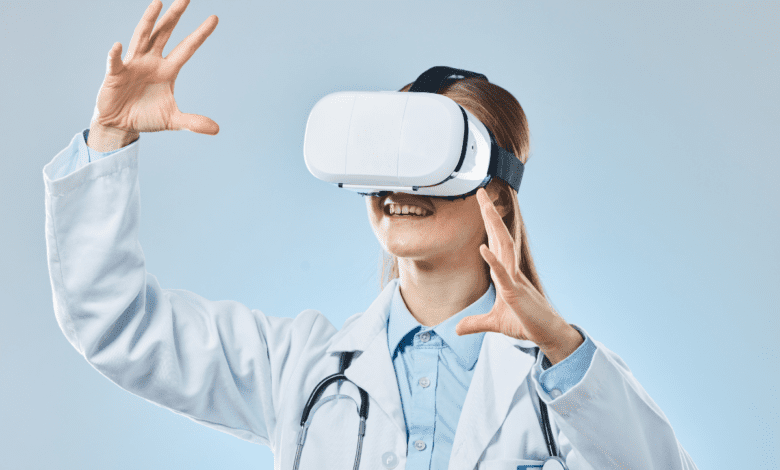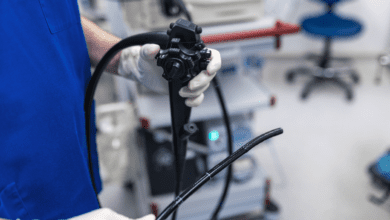How Technology Helps Personalize Weight Loss Surgery

Advancements in technology are rapidly transforming the medical field, and weight loss surgery is no exception. Today, innovative tools like Artifical Intelligence, 3D imaging., and virtual reality are helping doctors provide more personalized, effective treatments for patients undergoing bariatric surgery.
These technologies not only make surgeries safer. But they also enhance the accuracy of the procedures and improve long-term outcomes for patients. In this guide, we’ll explore how these cutting-edge technologies are shaping the future of obesity surgery.
The Role of AI in Bariatric Surgery
Artificial Intelligence is revolutionizing the way doctors plan and perform obesity surgeries. It can analyze vast amounts of patient data, from medical history to genetic factors. In this way, it identifies the most suitable surgical approach for each individual. By providing a more tailored plan, this technology ensures that patients receive the best possible treatment for their specific needs.
It can also help surgeons during the procedure itself. With these tools, doctors can predict potential complications, adjust techniques in real-time, and improve surgical precision. This reduces the likelihood of errors and leads to better patient outcomes.
For example, artifical intelligence can assess a patient’s BMI (Body Mass Index), metabolic rates, and even past weight loss attempts to recommend the best surgical method, whether it’s a gastric sleeve, gastric bypass, or lap-band surgery. Artifical intelligence doesn’t just stop at surgery—it can also assist with post-operative care, helping doctors monitor patient progress and make adjustments to ensure long-term success.
3D Imaging for Better Surgical Planning
It is a game-changer in obesity surgery, giving doctors a clear, detailed view of a patient’s internal anatomy before the procedure. This helps surgeons plan more precisely, ensuring they know exactly where to make incisions and navigate around vital organs.
In bariatric surgery, where precision is key, it allows for a customized approach based on each patient’s unique body structure. It minimizes complications, shortens the procedure, reduces anesthesia time, and leads to a faster recovery. Overall, this technology ensures a safer, more efficient surgery and a smoother healing process for the patient.
Virtual Reality in Bariatric Surgery Training
VR is becoming a valuable tool for training surgeons, especially for complex procedures like weight loss surgery. With VR, surgeons can practice techniques in a realistic, simulated environment, helping them refine skills and prepare for any challenges during actual surgery. This hands-on experience boosts confidence and leads to safer procedures and better patient outcomes.
VR isn’t just for surgeons; it’s also used to educate patients. Clinics use it to guide patients through their surgery, showing them what to expect. This helps reduce anxiety and ensures patients are better prepared for the procedure and recovery.
Combining AI, 3D Imaging, and VR for Optimal Results
The integration of advanced technology allows surgeons to take a more personalized approach to obesity surgery. By leveraging these technologies together, doctors can offer more precise surgeries, tailored to each patient’s unique needs.
Here’s how these technologies complement each other:
- Artifical intelligence analyzes patient data to recommend the best surgical option and predict potential risks.
- 3D imaging allows surgeons to plan the procedure with unparalleled precision, using detailed models of the patient’s anatomy.
- VR helps surgeons perfect their skills in a simulated environment and educates patients about their treatment.
Together, these tools result in shorter surgeries, reduced complications, and faster recovery times. More importantly, patients benefit from a more personalized approach to obesity surgery, improving their chances of long-term success.
The Future of Personalized Bariatric Surgery
The future of obesity surgery is bright, thanks to innovations like. As these technologies continue to evolve, they will further enhance the precision and personalization of bariatric surgery, making it safer and more effective for patients.
With the help of Artifical Intelligence, doctors can better predict patient outcomes, recommend individualized treatment plans, and ensure smoother recoveries. Imaging will continue to improve surgical planning, reducing risks and shortening recovery times.
Meanwhile, VR will play a crucial role in both training surgeons and educating patients, leading to better-prepared medical teams and informed patients.
These combined technologies offer a more efficient and patient-centered approach, ultimately transforming how bariatric surgeries are performed. By enabling doctors to tailor treatments specifically to each patient’s unique anatomy and medical history, these innovations reduce the likelihood of complications and enhance the overall safety of the procedure.
Patients benefit not only from more precise surgeries but also from faster recovery times and a smoother post-operative experience.
Additionally, with better-informed medical teams and empowered patients, the journey toward long-term success becomes more achievable and sustainable for those undergoing these treatments. The result is a higher standard of care and improved outcomes for everyone involved.





